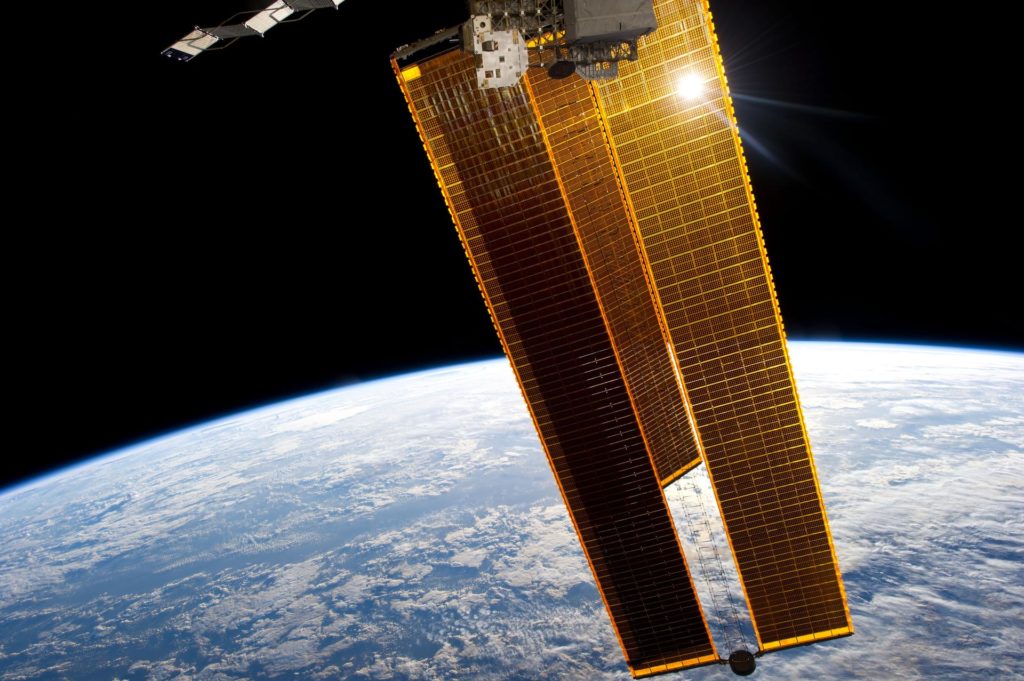
Solar array in space. Image: NASA CC0
The UK minister for Energy Security and Net Zero, Grant Shapps, will tell an audience at London Tech Week that £4.3 million will be awarded to companies and universities to drive innovation in space-based solar projects.
The Space Based Solar Power Innovation Competition is part of the government's £1 billion Net Zero Innovation Portfolio.
Space-based solar will see solar panels on satellites collect energy from the sun and then be wirelessly beamed back to earth. The technology, which is in the early stages of development, has the potential to increase the UK’s energy security as it negates the effects of intermittent generation with the sun visible at all times in space.
According to an independent study in 2021, space solar power could generate up to 10GW of electricity a year by 2050 – a quarter of the UK’s power needs.
A number of countries including the UK, Japan and the United States are developing space solar power, which recently saw a technological breakthrough as scientists at the California Institute of Technology claiming to have achieved the first wireless transmission of power from space to earth in the last month.
Grant Shapps said: “We’re taking a giant leap by backing the development of this exciting technology and putting the UK at the forefront of this rapidly emerging industry as it prepares for launch. By winning this new space race, we can transform the way we power our nation and provide cheaper, cleaner and more secure energy for generations to come.”
Space solar prepares for lift-off!????????????️
We're announcing new funding to develop space-based solar power tech in the UK. Solar satellites could one day provide enough power for three quarters of British homes.
Find out more ???? https://t.co/2VbUKSEs3G pic.twitter.com/Aw6iOwAQD9
— Department for Energy Security and Net Zero (@energygovuk) June 13, 2023
Eight projects won grants as part of the funding. These include £770,000 for the University of Cambridge to develop lightweight solar panels that can withstand high radiation space environments, £960,000 to Queen Mary University to develop a wireless power transmission system, £449,000 to Microlink Devices UK to develop flexible, lightweight solar panels, and £999,000 to Satellite Applications Catapult Ltd for an experiment to test the steering and beam quality of its space satellite antenna technology.
Dr Mamatha Maheshwarappa, payload systems lead at the UK Space Agency, said: “Space technology and solar energy have a long history – the need to power satellites was a key driver in increasing the efficiency of solar panels which generate electricity for homes and businesses today.
“There is significant potential for the space and energy sectors to work together to support the development of space-based solar power, and the UK Space Agency has contributed £1 million to these innovative projects to help take this revolutionary concept to the next level.”
In March, Solar Power Portal reported that a project at Northumbria University aiming to accelerate the delivery of solar power from space, received a £150,000 investment from the aerospace company, Lockheed Martin.

